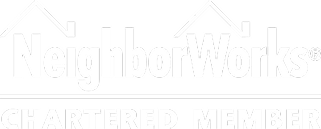news
How Bitter Melon Improved Housing in Providence, Rhode Island

The literal translation of the word “sankofa,” from the Akan tribe in Ghana, means “go back and fetch it.” Figuratively, it captures an important belief in Akan culture: While the future brings new learning, knowledge from the past must not be forgotten.This principle guided our efforts to transform 10 formerly blighted lots into a vibrant community of 50 modern “green” apartments in Providence, Rhode Island’s diverse West End community. The $13.5 million development is connected to 30,000 square feet of community garden space. Single fathers come with sons, pastors come with children and people sit under the garden’s pergola, which was built by local youth volunteers. It is, as one article put it, a “beehive of activity.”
A Holistic Approach to Health
We’ve come a long way from where we started nearly a decade ago. Then, residents of the West Elmwood Housing Development Corporation (WEHDC)—more than a third of whom are immigrants and refugees from Central America, West Africa and Southeast Asia—didn’t have much access to fresh, high quality, affordable food that both supported their overall well-being and allowed them to preserve their cultural values.
Food has a direct impact on health and is a critical component of cultural heritage within the diverse community. But WEHDC residents had trouble finding fresh produce native to their countries—places like Liberia, Nigeria, the Dominican Republic and Haiti. Instead, they relied on what canned goods they could find and resorted to high-fat, low-nutrition foods typical of the standard American diet, like hamburgers, pizza and so on, or traveled long distances to access foods native to their culture.
Neighborhood residents faced other systemic barriers to health and well-being: high crime rates, underperforming schools, large tracts of vacant lots and little access to green space, safe, walkable paths or community gathering spaces. The health of the community was in decline, with high rates of obesity, diabetes and other ills. Immigrants who arrived here in good health grew less healthy with each passing month.
Community members raised concerns. We at the WEHDC listened—and began a coordinated effort to bring about structural change in housing, food access and the environment.In 2011, we partnered with community leaders, scholars, nutrition and gardening experts and others to explore how to improve health and advance equity in the community. We conducted surveys, focus groups and interviews with members of the community—sometimes in their native languages—to learn how to best support health in the community, and we assessed offerings at local markets.Most housing projects only emphasize housing—the more units the better. But we realized we needed to go beyond the number of apartments we build and pursue a broader approach to health and well-being—one that integrates people’s cultural values into their kitchens, homes and neighborhoods.
In addition to apartments, we imagined a housing development with community spaces where tenants could come together and build community ties; a community garden, with raised beds, a tree nursery and a greenhouse, where residents could grow food and enjoy nature; and a weekly market with affordable, culturally relevant foods that celebrated cultures around the world.
In our view, this initiative fit WEHDC’s motto and mission perfectly: We build homes, we build community, we build lives.
Still, it wasn’t an easy sell. We had to bring two separate and often siloed social movements together—those advocating for affordable housing and those advocating for urban green space. And we had to persuade funders to set aside a large swath of prime real estate to use as garden space rather than for more apartments.
With the help of partners in academia and the nonprofit sector, we convinced funders that a holistic project such as this would be greater than the sum of its parts: Not only would it improve public health and narrow health disparities, but it would expand economic opportunity and strengthen community ties.
Support
West Elmwood
A $30 donation supports a refugee gardener during our Sankofa Garden season.





